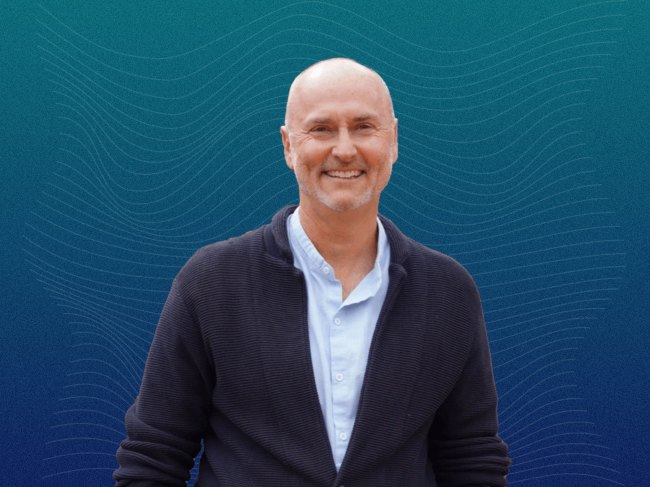This content includes references to suicide that may be distressing to some
readers.
It’s fair to acknowledge that the word “elder” can carry a negative connotation when you hit that middle-age range. Former Airbnb executive Chip Conley first encountered the term when he was referred to as a “modern elder” after he mentored the tech startup-turned-global giant’s millennial founders.
Tolong support kita ya,
Cukup klik ini aja: https://indonesiacrowd.com/support-bonus/
What is a “modern elder,” you ask?
It’s “someone who is as curious as they are wise,” Conley, now founder of the Mexico-based retreat and education center
Modern Elder Academy
, explains to Flow Space in a new episode of “
In Flow With.
” “I didn’t like that they were calling out the fact that I was older than everybody there, but I ultimately owned it and said, ‘yeah, if I can be the alchemy of curiosity and
wisdom
, that’s what a modern elder should be.’”
When you’ve had more career experience than others, it’s not just important to dispense wisdom, Conley says, but also to seek wisdom, because you can learn just as much from younger people (as he did at Airbnb).
There doesn’t have to be shame in your age. “We have a very fraught relationship with age, especially in the United States,” Conley points out. “Generally speaking, even though we age in public, we do look different over time.” For women, age can be connected to invisibility, and for men, it can be connected to irrelevance, he adds.
It makes sense that there’s fear around feeling either invisible or irrelevant in society. Also, midlife is the gateway to the second half of your life, which means you’re getting closer to death, he puts bluntly. And no one wants to talk about death.
“There’s a lot of institutional and societal
ageism
, especially in the United States,” notes Conley. But there’s a way to shift your mindset when it comes to your attitude about getting older. He cites Yale psychology and public health researcher
Becca Levy, PhD
‘s research, stating that simply looking at aging from a more positive viewpoint can add over seven years to your life.
“We need to help people understand what gets better with age… yes, our body does deteriorate as we get older, but maybe our
emotional intelligence
grows, our wisdom increases, our ability to be a great friend and value social relationships grows with age,” Conley explains. Our ability to edit, make changes to our lives and develop our own spirituality can also flourish as the years go on.
For those nearing or just entering midlife, there can still be plenty of
anxiety
around “not being where you thought you would be”-whether that means not marrying the person you expected or not reaching a professional milestone, Flow Space editor-in-chief Galina Espinoza notes during the conversation with Conley.
This relates back to “success-ism,” which Conley defines as “keeping up with your parents’ definition of success.” Once you get to age 40 or 50, it’s key to let go of what other people have defined as “success.” Then, you can establish your own definition based on your personal goals, values, desires and worldview.
“How do you own your life, and be the screenwriter for your life, in a way that is congruent to what matters to you?” asks Conley. “That’s the upside of aging after 50.”
Midlife should be as important of a stage in life to research, discuss and spotlight as adolescence or retirement age. So why isn’t it? Well, first of all, “midlife” wasn’t a concept until the 1950s or so, because average lifespans grew from about 47 in 1900 to age 77 in the year 2000. “We added 30 years of
longevity
in one century,” Conley explains, “and because of that, midlife emerged.”
The only problem was that the popularization of the term midlife came with the word “crisis” attached to it, needlessly giving that stage of life a bad rap.
That’s slowly changing, though, says Conley, especially as
menopause
moves into the cultural spotlight and “middlescence” becomes part of mainstream dialogue. Men and women both need to own this midlife period and “see the upside of the second half of their adult life,” he emphasizes.
Attitudes toward aging can become a sticking point particularly in
romantic relationships
. If you radiate positivity about getting older, a partner may resist that or they can start to emulate it, according to Conley. Couples, whether they’re in a heterosexual partnership or not, should get together with other couples and challenge these ideas about midlife; it’s important for males, in particular, to have role models in the midlife transition who are men. When men can have these conversations about
loneliness
, or challenges they’re facing at the
midpoint in their careers
, it can be a “relief” to them, says Conley.
Conley opens up about losing five male friends to suicide, ages 42 to 52, during the economic recession of 2008 to 2010. It was also the lowest point in his own life. “I was going through some suicidal ideation at the time too, and my life was falling apart,” he admits. The unfortunate tragedy of losing his friends has pushed him to commit further to his mission of optimism around aging-he speaks about a close friend and confidante, also named Chip, whose sudden death was a shock and greatly affected him.
“I am positive about this, partly because I want to be a testament to those men who didn’t have a program like [Modern Elder Academy], or a man like me, telling a story about what midlife can be,” Conley says.
He wants people to know that midlife is not just about the physical side of the transition, either
menopause
for women or andropause (the much more subtle, male version of the menopausal hormone shift) for men. “The things that get better with age are just so remarkable: your emotions, your cultural sophistication, your intellectual heft, your relational value, your spiritual curiosity,” adds Conley.
That’s why we should recognize non-physical midlife growth just as much as growth during adolescence. “You’re growing in ways that are invisible,” says Conley. “Inside of us, we have all of that wisdom, and that curiosity, and that relational capital… so break yourself open and show all that goodness to people.” Spoken like a true modern elder.
More from Flow Space
- What If a Selfie Could Predict Your Life Expectancy?
- 3 Small Things This Orthopedic Surgeon Wishes Women Would Do for a Longer Life
- 3 Healthy Recipes for Longevity from the ‘How Not to Age’ Cookbook






